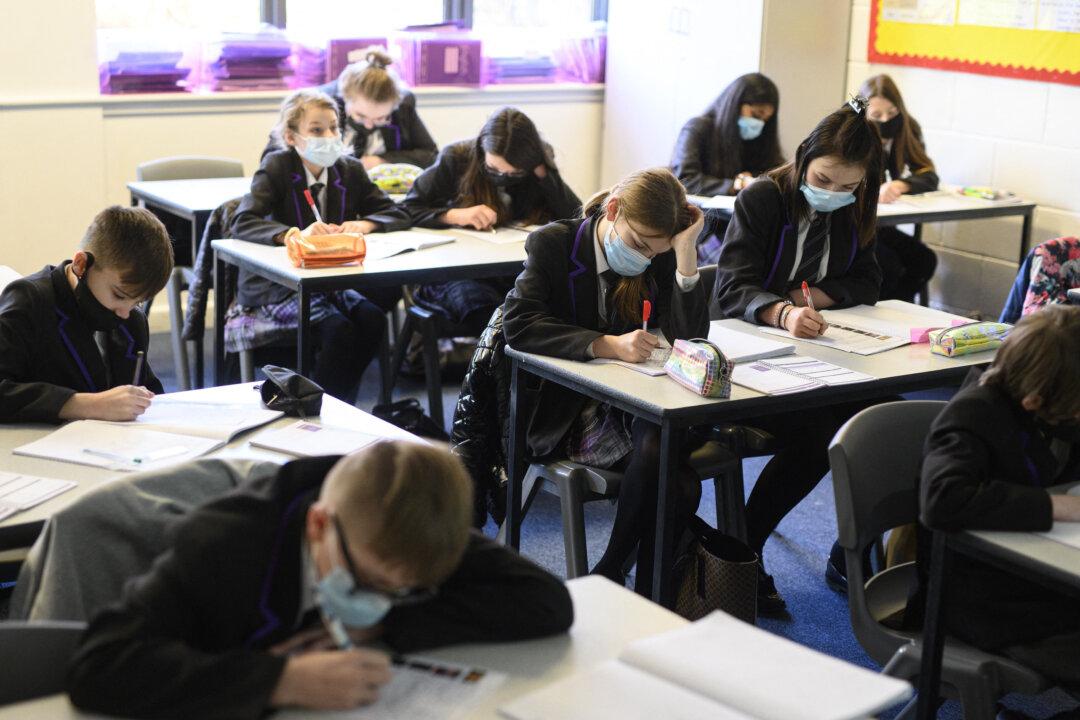At the beginning of January, around 9 in 10 young teenagers in the UK had either previously had COVID-19 or been vaccinated against the CCP virus, official analysis suggests.
The Office for National Statistics (ONS) estimated that the percentages of children aged between 12 and 15 who were likely to test positive for CCP (Chinese Communist Party) virus antibodies were 90.9 percent in England, 91.7 percent in Scotland, 88.0 percent in Wales, and 90.7 percent in Northern Ireland.





